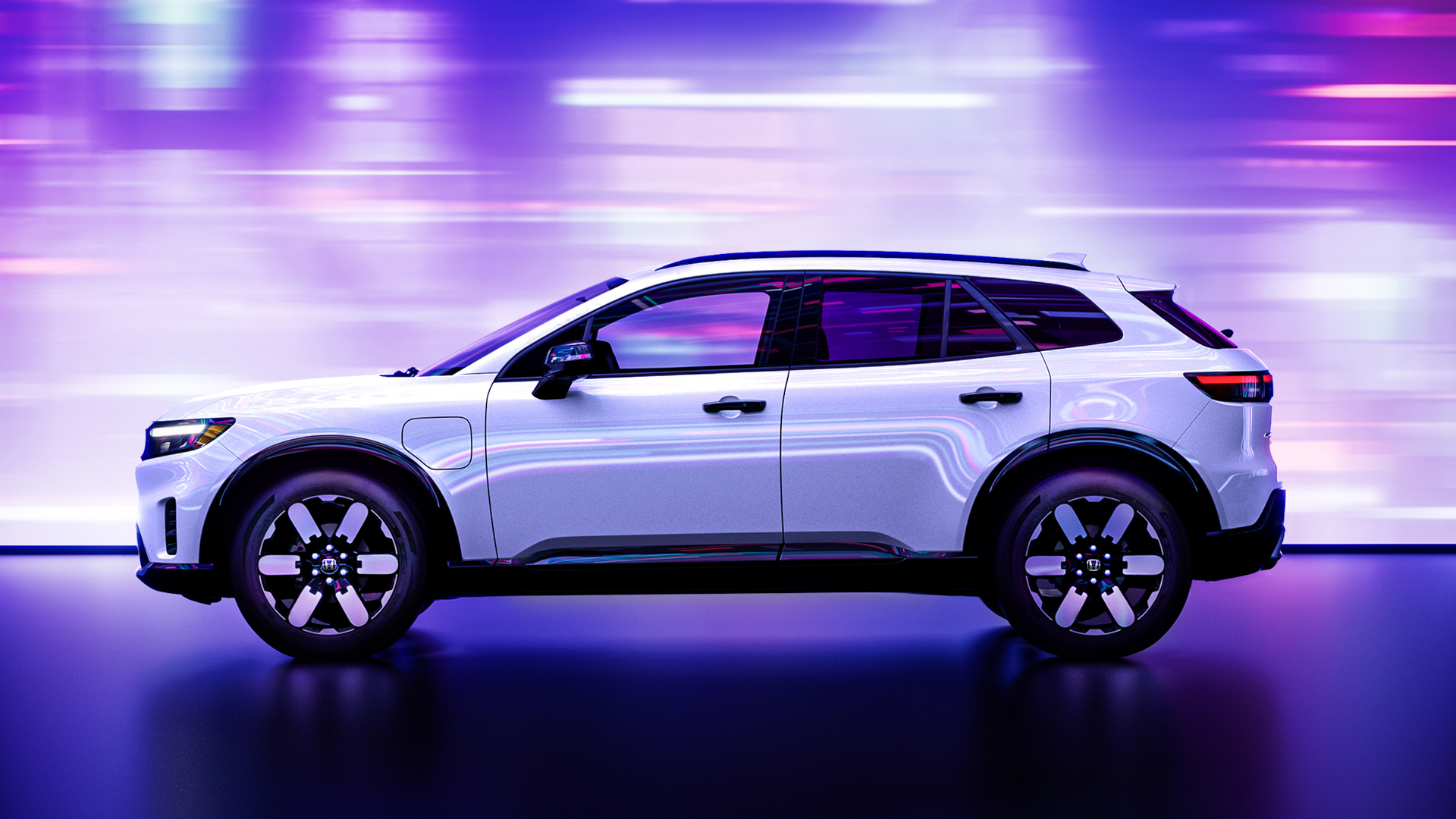

Range continues to be an issue for electric vehicles, despite their improvements over the years. Battery packs are heavy, and stuffing in ever-larger ones to increase range can be counterproductive. That’s where solid-state batteries can help. During a conversation with The Drive at Monterey Car Week, Honda executives said they aim to cut battery weight in half through the use of such technology, without sacrificing any real-world range.
“The conventional thinking has been, if people are concerned about the range of the vehicle, then the answer is to put more battery in it. And of course that gets you into this spiral of cost, weight, and dimensional return,” Jay Joseph, American Honda’s vice president of sustainability and business development, said. “At some point, more battery doesn’t help.”
According to Joseph, the answer to improved EV range and usability isn’t increasing battery size, but rather reducing weight and speeding up charge times. Solid-state batteries have the ability to charge quicker than conventional lithium-ion packs, partially because of their superior thermal stability.

“Fundamentally, the answer to range anxiety is not more battery, it’s better access to charging. You don’t necessarily need 600-mile BEVs if there’s more accessible charging. And the technology will continue to improve. We’ve already announced we’re in a proof-of-concept stage with solid state, and that has potential to reduce weight and increase the range of the vehicle,” Joseph said.
When asked how much weight solid-state batteries would eliminate, Honda executive vice president and global electrification chief Shinji Aoyama explained that it would be halved. “Simply, the energy density would be doubled. So same energy, same volume base, kind of half [the weight],” Aoyama said.
At the moment, most electric vehicle battery packs take up the entire floor of modern vehicles. If Honda’s solid-state batteries truly do cut weight and size in half without reducing performance, there could be quite a bit more space in the floor of future Honda vehicles. Could that lead to smaller cars? Will the empty space require more structural bracing, thus adding weight back into the vehicle? Those are bridges Honda will cross when it gets to them.

Another benefit of solid-state batteries is manufacturing time. Typical lithium-ion batteries, with their liquid electrolytes, require lengthy charge preparations before they can be put into vehicles. Solid-state batteries don’t need such preparations and can be manufactured more quickly, which could also make them cheaper. However, manufacturing facilities would need to change in order to produce solid-state batteries, and that carries its own expense.
Honda is currently in the proof-of-concept stage with its solid-state batteries, looking to enter pilot production next year. When the time comes to actually put them in consumer vehicles, it will be interesting to see what Honda does with a 50% reduction in weight to an EV’s heaviest component.
“Once we introduce all solid state, maybe at that time, we may put double the energy volume into the same car. So basically the same weight. But once we develop something new, then we will apply a smaller battery case for that product,” Aoyama said.

One direction the company may take is to build smaller, lighter cars, with longevity on a full charge similar to EVs at present. We could eventually see more compact Hondas, like an electric version of the Civic, with 40- to 50-kWh batteries providing almost 300 miles of range, depending on aero design and tires. But based on Aoyama’s prediction, it seems Honda wouldn’t go this route out of the gate.
The automaker might elect to build SUVs with battery packs comparable in size and weight to those in modern EVs—only now with double the range. That could mean an electric Honda Pilot packing 600 miles of charge from an 80- to 100-kWh battery. This is the likelier approach in the nearer term, because it would allow Honda to leverage existing platforms accounting for today’s less energy-dense technology. Ultimately, no matter which of the two approaches Honda opts for, the resulting solid-state battery would charge faster than a conventional lithium-ion pack.
If Honda can halve the weight of its batteries while improving energy density and charging speed, its hybrids and EVs will be significantly more compelling than anything it currently offers, or is slated to offer. How soon it can bring such a solution to market, and whether it can beat competitors like Toyota to the punch, are different questions for a different time.
Got tips? Send ’em to tips@thedrive.com